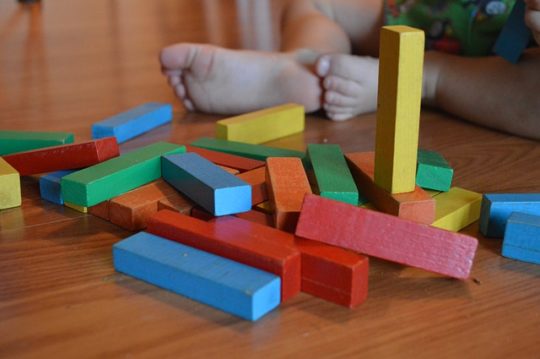
When it comes to early childhood education, there are numerous options. But while most people assume it’s either private school or public school, there are actually other options. Montessori education, for example, is totally unique in its approach. But is it worth the investment? Let’s do some exploratory work to find out more.
What is Montessori Education?
“For more than a century, Montessori has been thriving around the globe, and contemporary research validates the effectiveness of the Montessori Method,” American Montessori Society explains. “Several key elements of the approach meet the educational goals today’s parents have for their children, including growing into capable people who will be have a strong sense of self, the ability to connect with others, and the potential to be productive throughout their lives.”
As opposed to the traditional method of Western education where students follow a standardized curriculum and conform to educational requirements established by adults in suits and ties, Montessori education prioritizes potential and allows children to naturally gravitate towards the skills, interests, and opportunities that they have. Yet, at the same time, it promotes discipline and organization.
While there are Montessori school that stretch into middle and high school, the majority of schools focus on early childhood education – particularly the 0 to 6 age range. It’s during this time that children are most impressionable and inquisitive.
5 Benefits of Montessori Education
Montessori education is different than traditional public or private school education – that much is for sure. The question is, what benefits does it offer the child? Let’s take a look:
- Focus on Development
The Montessori education system is all about development. Young children are taught to hone their large muscle and language skills. Older children – typically around age four – are taught refined motor skills and activities like arts, crafts, and cooking. Preschoolers may even take their learning outside of the classroom to explore their communities and develop social skills.
- Child-Specific Learning
Child-specific learning is the mark of Montessori education. As opposed to a traditional school environment where children are forced to keep up with generic learning requirements in order to move up a grade, Montessori students are able to learn at a pace that’s tailored to their own cognitive abilities and personalized talents.
- Encouraging Environment
“Montessori teachers carefully choose words to convey consistent expectations for every child,” Primary Montessori explains. “Respect, kindness, and positivity are modeled to help students master the social skills vital to future success. Words that encourage children to be independent, intrinsically motivated critical thinkers are used consistently at school.”
Young children are highly impressionable and benefit greatly from being part of an encouraging community. Not only do they feel reassured, but they also learn how to interact with and encourage others. These lessons will follow them throughout their lives.
- Teaching Methods That Inspire Creativity
In a traditional school setting, children are taught to listen to the teacher and follow a lesson plan. This forces children to operate within strict borders that limit creative thinking. At Montessori school, this isn’t the case. Teaching methods are designed to gently nudge students along while allowing children to explore their creativity and inspiration. As a result, children learn about themselves and their creative capabilities from a very early age.
- Instilling of Self-Discipline
One of the more amazing aspects of Montessori education is how students learn to cultivate self-discipline and independence while understanding the value in cooperative learning.
“It is common to see students of different ages working together,” American Montessori Society mentions.” Older students enjoy mentoring their younger classmates—sometimes the best teacher is someone who has recently mastered the task at hand. Younger students look up to their big ‘brothers’ and ‘sisters,’ and get a preview of the alluring work to come.”
Finding the Right Solution for Your Child
Montessori education isn’t perfect for every child. Some students will thrive better in a traditional setting. However, the Montessori system is designed in such a way that most young children benefit from the opportunities and freedoms to explore their creative side in such a manner that it positively shapes them for years to come. Perhaps your child will, too.

















